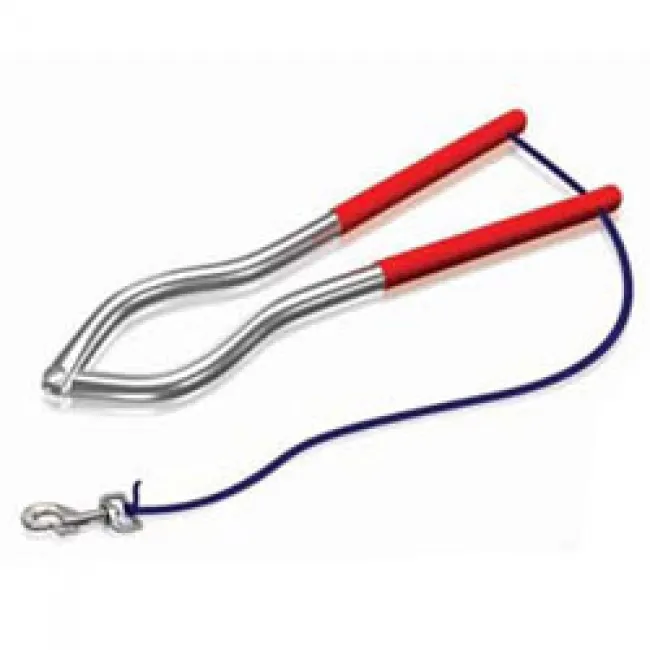The Humane Twitch is a durable stainless-steel tool designed for safe and humane horse restraint. Its non-slip rubber handles provide comfort and control, while the gentle lip pressure helps calm the horse naturally during grooming or medical care.
Description
The Humane Twitch is an essential tool for anyone who works with horses and values both safety and calm handling. It helps control a horse’s movement during grooming, examination, treatment, or medical procedures without causing pain or fear. By applying gentle pressure to the horse’s upper lip, the twitch helps release natural endorphins that relax the animal and make handling easier. This natural calming effect makes it a humane and effective choice for equine restraint.
Built from high-quality stainless steel, the Humane Twitch is strong, durable, and resistant to rust or bending. It can withstand regular use in barns, stables, and veterinary clinics. The tool features smooth, polished edges that prevent discomfort or injury. The bright red rubber handles provide a secure, non-slip grip, allowing handlers to maintain full control even during stressful situations. These comfortable handles reduce hand fatigue, especially when working for longer periods.
A durable rope is attached to the twitch, making it easy to secure and release quickly. The rope’s length gives flexibility to adjust the tension as needed, ensuring proper application for horses of different sizes. The design allows for one-person operation, saving time and effort while keeping the horse calm and still.
The Humane Twitch is lightweight yet sturdy, easy to clean, and designed for long-term use. Its simple structure ensures quick handling, making it ideal for veterinarians, horse trainers, farriers, and stable workers. Whether used during dental work, hoof trimming, injections, or wound care, it provides a safe and humane method of restraint.
This tool promotes both handler confidence and horse comfort. It is an excellent choice for professionals who want reliable performance, animal welfare, and effective control combined in one easy-to-use design.


